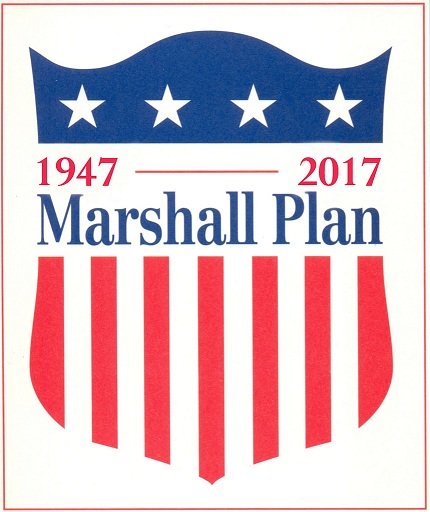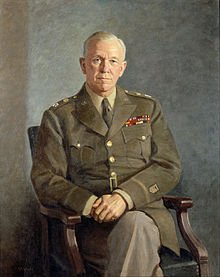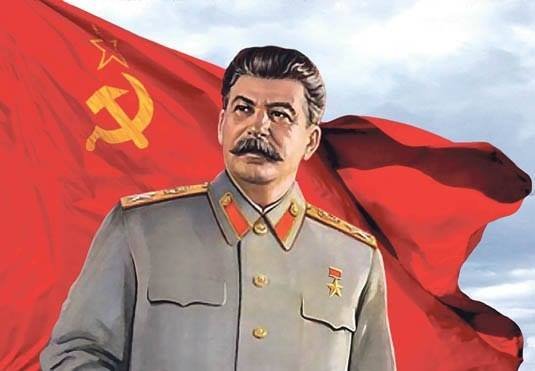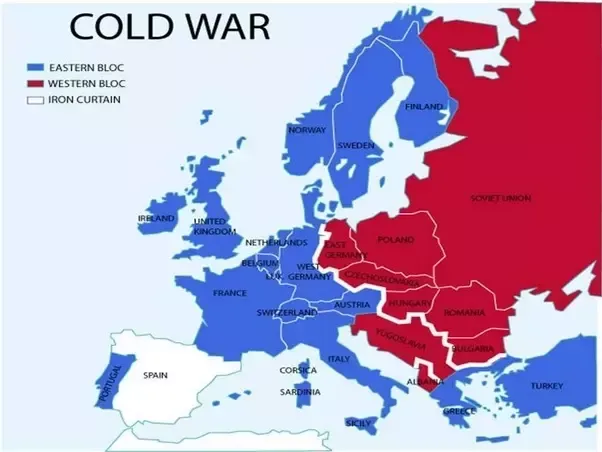Lecture lecture!
The Marshall Plan was a foreign aid that was proposed and implemented by the United States to Europe after the World War II. Knowingly that after the World War II, Europe was in great turmoil because of the destruction that was left by the war. However, the Soviet Union, along with its satellite states, refused the assistance. The refusal of the Soviet Union and its satellite states from the Marshall Plan which was led by the United States resulted to the intensification of the conflict between the US and the USSR resulting to the Cold War.

But what is the Marshall Plan anyway?

The Marshall Plan was proposed on June 5, 1947 by the Secretary of State George Marshall in response to the critical political, social, and economic conditions in which Europe found itself at that time. George Marshall merely suggested that the United States would be willing to help draft a program and would provide assistance “so far as it may be practical for us to do so.” In addition, Marshall called for this assistance to be a joint effort, “initiated” and agreed by European nations.
The Marshall Plan, also known as the European Recovery Program (ERP), is an aid in which the United States had given to help Europe during its great turmoil after the outbreak of the World War 2. The United States financed the Economic Recovery of Europe by giving an estimated amount of 13 billion dollars. The infrastructure, the building and economy in Europe were ruined and destroyed.
The Marshall Plan was a joint effort between the United States and Europe and among
European nations working together. Prior to formulation of a program of assistance, the United States required that European nations agree on a financial proposal, including a plan of action committing Europe to take steps toward solving its economic problems.
What were its goals and intentions?
The Marshall Plan was designed to accomplish three objectives: the expansion of European agricultural and industrial production; the restoration of sound currencies, budgets, and finances in individual European countries; and the stimulation of international trade among European countries and between Europe and the rest of the world. With the said objectives, it is clear that the US wants to influence Capitalism over Europe as the USSR was a communist one.
The US did have interests in Europe. Aside from wanting to spread Capitalism and American products, the US wanted to contain Communism in Europe. The US was afraid of the thought of Communism spreading throughout the Western Europe to the US. On the other hand, the USSR was also afraid of the though of the spread of Capitalism over Europe. The US didn't pretty much care if Communism were to spread southwards, just not eastward.
When Germany was split in half by the end of the World War II, the Eastern Germany being a satellite state of the USSR and the Western Germany liberated, the Western part had accepted the aid from the US along with the other countries. The Marshall Plan itself was successful in restoring most of Europe's economy and industry.

When Czechoslovakia and Poland knew of the Plan, they were intrigued and wanted to receive the aid. Was the USSR itself offered with the aid? Yes. When the USSR officials, along with British and French counterparts, held a meeting to discuss about the goals and intentions of the Marshall Plan, Molotov as a representative, he immediately walked out when he heard of the US' involvement with the Plan. And with Stalin's orders, Czechoslovakia and Poland were not allowed to receive any aid. And of course, the USSR refused to take the aid.
How did it intensify the Cold War?
When the USSR refused to take aid, the Americans viewed it as a form of hostility and aggressiveness. The American ambassador Walter Bedell Smith described Soviet actions as “nothing less than a declaration of war by the Soviet Union on the immediate issue of the control of Europe.” Stalin also saw this as a way for the Americans to gain control over Europe. And the USSR didn't like the idea of them being in debt to the US. It not only intensified their relations but it also intensified the Cold War.

All photos are taken from Google.
Congratulations @dnnjyz! You have received a personal award!
Click on the badge to view your Board of Honor.
Downvoting a post can decrease pending rewards and make it less visible. Common reasons:
Submit
Congratulations @dnnjyz! You received a personal award!
You can view your badges on your Steem Board and compare to others on the Steem Ranking
Vote for @Steemitboard as a witness to get one more award and increased upvotes!
Downvoting a post can decrease pending rewards and make it less visible. Common reasons:
Submit